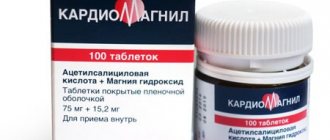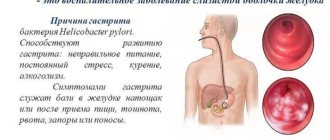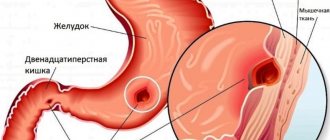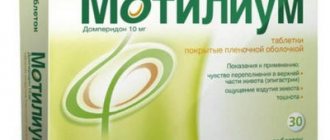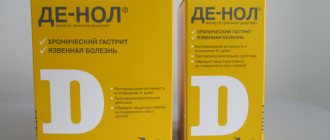Benefits of fish oil for the stomach
Fish oil contains a complex of vitamins and omega fatty acids, which have a positive effect on the digestive system. A supplement containing this component is beneficial for the stomach and produces the following effects:
- Relieves irritation of the mucous membrane. The oily liquid envelops the walls of the organ in a thin layer, protecting it from the action of hydrochloric acid, which is part of the gastric juice.
- Reduces pain, which always occurs with gastritis and ulcers.
- Helps eliminate inflammation and accelerate tissue regeneration.
- Normalizes the functioning of the nervous system, increases resistance to stress.
- Protects the mucous membrane from the aggressive effects of free radicals.
Thanks to the antioxidant effect, the natural aging of tissues is also slowed down and the risk of malignant tumors is reduced.
Interesting to know! Stabilization of general health allows you to accelerate the onset of remission in case of peptic ulcer or gastritis. Fish oil provides the body with vitamins and omega acids. After taking such a biological supplement, metabolic processes are normalized, teeth and bones are strengthened, and the immune system is strengthened.
Omega-3 (fish oil)
Everyone remembers the burning stories about how Soviet children were forced to drink fish oil. Meanwhile, today, consuming fish oil is still considered a healthy “habit.” Then children were given a “nasty mixture” for rickets, because fish oil is one of the richest sources of vitamin D, necessary for the absorption of calcium. Today, fish oil is taken as a dietary supplement to prevent many health problems, as well as to maintain beauty and energy levels. And the release form is now more pleasant - capsules.
In addition to the precious vitamin D, fish oil contains vitamin A, which is involved in the production of chondrocytes (cartilage cells). It also contains phosphorus, which is necessary for normal growth and development of bones and teeth.
So, what else is fish oil good for? It contains the most valuable Omega-3 fatty acids. The human body does not produce these acids on its own. They come only with food or dietary supplements. But getting enough Omega-3 from your usual diet is quite difficult.
Food sources of Omega 3:
- fish (salmon, mackerel, sardines and herring);
- oysters;
- soy;
- chicken eggs;
- walnuts;
- flax seeds;
- chia seeds;
- spinach.
These polyunsaturated fatty acids (PUFAs) form the basis of the immune system cell membrane, which is necessary for protection against viruses. They are also precursors to eicosanoids and cytokines, hormone-like substances that are responsible for transmitting information between immune cells. They control the functioning of the immune system, instructing leukocytes to urgently “run” to the source of inflammation.
PUFAs increase the activity of macrophages and T cells. They also stimulate the production of prostaglandins, which have an anti-inflammatory effect.
Beneficial properties of Omega-3:
- Strengthening the immune system.
- Regulation of the work of all organs and systems.
- Transmission of impulses in nerve cells.
- Stimulating the production of serotonin.
- Respiratory protection against infections.
- Strengthening the walls of blood vessels, as well as protecting them from excess cholesterol, which is called “bad”, preventing the formation of cholesterol plaques.
- Improving blood clotting.
- Normalization of blood pressure.
- Reducing the concentration of homocysteine, preventing the formation of blood clots and related problems.
- Strengthening the skeletal system, relieving inflammation and relieving joint pain.
- Preventing the destruction of articular cartilage, improving joint mobility.
- Improving the condition of the bronchi in smokers.
- Normalization of the menstrual cycle.
- Prevention of tumor formation in the intestines, genitourinary system and mammary glands.
- Anticarcinogenic effect.
Omega-3 PUFAs also have a beneficial effect on the condition of the skin (protect collagen from destruction, increase strength and elasticity, help clear rashes and relieve inflammation) and their antioxidant effect.
Possible signs of Omega 3 deficiency:
- dry skin;
- brittle nails and hair;
- sleep disorders;
- problems with concentration;
- joint pain;
- fast fatiguability.
Now both adults and children take fish oil. As a dietary supplement, fish oil capsules can be taken by adults and children over 4 years of age.
When should you take fish oil for ulcers and gastritis?
Fish oil is good for the stomach, so the dietary supplement is often prescribed as part of complex therapy to speed up recovery. The drugs are recommended for a person to drink if an examination of the digestive tract reveals:
Gastritis:
- with high acidity (fish oil protects the stomach wall from the aggressive effects of hydrochloric acid);
- against a background of nervous stress.
Heartburn and belching accompanying inflammation of the gastric mucosa.
It is not advisable to drink dietary supplements if erosions and other damage to the walls of the stomach are detected. Therefore, the question of whether it is possible to drink fish oil for gastritis is decided by a gastroenterologist.
The product also has a blood-thinning effect and is prescribed with caution for stomach or duodenal ulcers. In a person with such diseases, taking fish oil-based medications can cause gastrointestinal bleeding.
Fish oil
Suction
Retinol is absorbed from the gastrointestinal tract (mainly the duodenum and jejunum) after emulsification with bile acids. Retinol entering the intestinal microvilli undergoes esterification. The resulting retinyl palmitate binds to specific lipoproteins, penetrates the lymphatic pathways and, as part of chylomicrons, enters the liver, where it is captured by stellate reticuloendotheliocytes, and then by hepatocytes, where the chylomicrons are cleaved, releasing retinyl palmitate, retinol and retinal and the retinoic acid formed from it. Retinol binds to a specific protein, enters the blood, combines with albumin and is transported to various organs.
Absorption of vitamin D occurs in the proximal small intestine, necessarily in the presence of bile. Part of vitamin D is absorbed in the middle sections of the small intestine and a small part in the ileum. After absorption, cholecalciferol is found in chylomicrons in free form and only partially in ester form. In the blood, most of it is bound to gamma globulins and albumins.
Distribution
Retinol is distributed unevenly in the body: the largest amount is in the liver and retina, the smaller amount is in the kidneys, heart, lungs, lactating mammary gland, and adrenal glands. Retinol is deposited in the form of retinol palmitate, its reserves are slowly but constantly renewed. In tissues, retinol is localized mainly in the microsomal fraction, mitochondria, lysosomes, and in the membranes of cells and organelles.
Vitamin D accumulates in large quantities in bones, in smaller quantities in the liver, muscles, blood, and small intestines, and is stored especially long in adipose tissue. Passes into breast milk in small quantities.
Metabolism and excretion
Retinol binds to glucuronic acid: β-glucuronate undergoes hepatic circulation and oxidation to retinal and retinoic acid. Retinoic acid undergoes decarboxylation and binds to glucuronic acid, subsequently excreted in bile and feces. The half-life of retinol is very long and is measured from several weeks to several months. Retinoic acid and other water-soluble metabolites are also excreted in urine and feces.
The main processes of vitamin D biotransformation occur in the skin, liver and kidneys. In the skin, under the influence of ultraviolet irradiation, vitamin D3 is formed from precursors. In the liver, vitamin D is hydroxylated and converted into 25-hydroxycholecalciferol (25-OH-D3). The latter in the kidneys, with the participation of parathyroid hormone, is converted into the most active metabolite of vitamin D - calcitriol, or 1,25-dihydroxycholecalciferol (l,25(OH)2-D3). The half-life of vitamin D from the body is about 19 days. It is excreted through bile excretion, initially into the intestine (15-30% of the administered dose during the day), where it undergoes enterohepatic circulation (reabsorption). The remaining part is excreted in the feces.
Contraindications and precautions
It is prohibited to take the drug if a person has a history of:
- Renal pathologies accompanied by dysfunction of organs. The substance stimulates the absorption of calcium and an increase in its content in the blood plasma. If kidney function is impaired, the drug can cause the development of urolithiasis.
- Individual intolerance to omegas or vitamins contained in the product.
- Ulcer of the duodenum or stomach.
- Tuberculosis.
- Bronchial asthma or COPD.
- Thyroid diseases.
- Cirrhosis of the liver.
- Hepatitis.
- Exacerbation of gastritis. Taking dietary supplements can aggravate the course of the disease.
- Hypervitaminosis D.
California Gold Nutrition, Omega-3, Premium Fish Oil, 100 Fish Gelatin Capsules
★★★★★
514 rub.
More details
A relative contraindication is pancreatitis. With the disease, the production of pancreatic enzymes decreases, which means that fish oil is poorly broken down into useful components and is not absorbed. This causes diarrhea and flatulence. But polyunsaturated acids are important for the restoration and protection of pancreatic cells, therefore, during remission of chronic pancreatitis, it is allowed to consume fish oil after consultation with a gastroenterologist or other specialists.
Despite the fact that pregnancy is listed as a contraindication in the instructions for the biological supplement, gynecologists can prescribe a course of treatment with fish oil if there is a threat of miscarriage, toxicosis, heartburn and some other conditions. But the drugs are taken strictly as prescribed by the doctor, since uncontrolled use of dietary supplements can negatively affect the development of the fetus.
Attention! Taking fish extract for stomach diseases can be both beneficial and harmful. Even if it seems that there are no contraindications for taking the drug, you should not drink it without a doctor’s prescription.
Watch the video about the conditions under which taking fish oil is contraindicated:
Fish oil, harm and contraindications
The benefits and harms of fish oil for the body
Fish oil came into medicine thanks to the Norwegian scientist Peter Møller, who discovered a substance called “animal fish oil.” He talks about his ability to restore the body after any losses - mental, emotional and physical. Omega-3 affects the body by dilating blood vessels and preventing the formation of blood clots. Restores muscles after training, improves skin, and normalizes blood pressure. In this case, flaxseed oil is considered an analogue of the “growing area” of this vitamin. Vitamin A has always been known for its ability to improve blood circulation and metabolism. Oncological diseases do not occur if there are many A derivatives in the body. Vitamin D helps vision - the absorption of calcium and phosphorus improves visual memory and vision itself. It is also useful for bone tissue, especially during the period of growth of the child’s body. Antioxidants are the current old-timers of youth. They slow down the action of free radicals, which are responsible for aging of the body. That's why they are called the fountains of youth. Such beneficial properties of fish oil cannot be ignored, and it is really worth paying tribute to the scientist who made his contribution to medicine by revealing fish oil and all its beneficial properties to the world. However, neither production nor medicine stands still - now fish oil is also available in capsules, which makes it better absorbable.
First of all, the substance is easier to consume in capsule form. It is much easier to swallow a tasteless tablet than to drink a fatty mass (like butter), feeling all the charm of a viscous drink. This form allows you to give fat to children, the sick, and women during pregnancy, when you often want to return everything you swallowed to the shelf.
Contraindications of fish oil and its side effects
Persons who have been diagnosed with tuberculosis in the open form (they always wear medical bandages on their faces), or in the closed form, should not take fat in any quantity or form. This can provoke an acute syndrome, and for those who suffer from first-degree tuberculosis, it can complicate the course of the chronic stage of the disease. Allergies, in contrast to side effects, may occur more often, since some individuals are susceptible to VSD, and the presence of animal fats that enter the body in pure form (even in capsules) can cause indigestibility.
Fish oil for weight loss
This component stimulates metabolism, but does not have a direct effect on fats. The burning of subcutaneous cells of fatty consistency will occur due to the increased work of the pancreas. Women can combine physical activity and an active lifestyle by taking capsules. In this case, weight loss of up to 0.5 kg per week will be observed with intensive training.
When to take fish oil - before or after meals?
Dosage of fish oil capsules: Children under 12 years old, 2 capsules 2 times a day;
Children from 3-7 years old – 1 capsule 2 times a day; Children over 12 years old – 6 capsules 2-3 times a day. Persons over 50 years of age should take capsules based on body weight: up to 60 kg - 3 capsules 3 times a day, up to 80 kg - 5 capsules three times a day, and over 80 kg - 6 capsules up to 3 times a day. At all ages, the drug is taken before meals, half an hour before meals. The course lasts 3 months, can be repeated 2 times a year with a break of 3 months. To improve facial aesthetics, it is enough to take a 3-month course of fish oil capsules. They have a positive effect on replenishing the body with acids, freeing the sebaceous glands and releasing radicals, preventing aging. It will be useful for women and men to take a course if indicated. There is no need to prepare masks and other skin balms. The vitamins themselves already have a positive effect on the dermis and epidermis.
Release forms
Fish oil preparations are available in two forms:
- oily solution;
- capsules.
Fish oil is equally useful in any of the offered forms. But most people prefer capsules, since the gelatin shell hides the unpleasant taste, protects the product from external factors (air, sun) and preserves its properties. Additionally, capsule manufacturers add vitamin E to the drug, which slows down oxidation. But a significant advantage is the ability to accurately calculate the dosage required for treatment.
Instructions for use
The intake of dietary supplements depends on the type of gastritis:
- It is recommended to drink fish oil before meals in case of high acidity;
- after meals, washed down with warm water - with reduced acidity.
Standard dosage: 1-2 teaspoons or 2 capsules three times a day for 1-3 months. The gastroenterologist may also recommend a different regimen.
Attention! For peptic ulcers, you can provide the body with palmitic, oleic and omega acids, as well as important vitamins, by adding sea fish (hake, blue whiting, pollock) to your diet.
Fish oil and mass prevention
Murzaeva Irina Yurievna
Endocrinologist, Preventive Medicine Doctor
October 25, 2022
It is difficult to overestimate the importance of consuming FISH OIL. Fish oil is valuable for the polyunsaturated acid OMEGA-3 it contains (and omega 6 vitamin D!). Omega-3-6 are also found in other foods of the animal and plant world. But the maximum concentration is observed precisely in fish oil. And despite all this, a ban on its use in medicine was introduced in the USSR.
Fish oil has been used in disease prevention programs for over 150 years. Soviet scientists hypothesized that our food contains insufficient amounts of polyunsaturated fatty acids (omega 3-6-9). These acids are found in large quantities in fish oil. But we don’t eat enough fish oil to cover our body’s needs.
In the USSR, for several years, the government actively organized preventive methods for improving the health of children.
At school and kindergarten, fish oil was forcibly given to each student using a dessert spoon from a bottle. And no matter how badly we treated fish oil in childhood, care for the younger generation in those days was at the state level and gave positive results.
The children were strong. There were very few children in the class who fell asleep during lessons from fatigue. Children very rarely suffered from colds. In those days, there was such a saying: Fish oil should be taken in the month of the year where the letter “P” is: January, February, March, April September, October, December.
In addition to taking “spoonfuls” of fish oil, there was fish on the school canteen menu every Thursday. Thursday was fish day.
But in 1970, a decree was issued banning the use of fish oil in medicine. Why did this happen?
Let us turn a little more to history: “In the Kaliningrad region, small fish that were useless and very harmful to other fish were used for fat burning. In other regions of the country, the main object of fat burning was the entrails and waste from fish cutting.” And only because fish oil was rendered from the entrails of fish, waste from fish cutting, as well as from fish liver oil, it contained a huge amount of toxic substances. And this is very harmful, especially for a child’s body.
It is for this reason that the preventive use of fish oil was banned in 1970.
But no one has canceled the positive effect of fish oil on the body.
And in 1997, a law was passed to return fish oil to pharmacies
But mass prevention with fish oil is a thing of the past, and perestroika began in the country.
I think for this reason, the number of omega-3 deficiency (a separate topic) and vitamin D deficiency-associated diseases has increased exponentially in the country:
- first of all, rickets (it is less common, yet mass prevention of rickets in children under one year of age has been established in the country);
- osteomalacia (more often!!!!) is rickets in adults;
- cholelithiasis and urolithiasis;
- as well as infertility, missed pregnancies, alopecia, sarcopenia (decreased muscle mass), caries, depression, obesity, increased incidence of acute respiratory infections and ARVI (immune defect), probably AIT and other autoimmune diseases and some others!
In the pathogenesis of many diseases there may be a deficiency of vitamin D. Here many clinical cases could be described where the main complaints were based on a primitive deficiency of vitamin D.
But fish oil is a complex thing. As it turned out, it consists of several polyunsaturated fatty acids (PUFAs) - omega-3 and omega-6 (this is vitamin D!!), oleic (more than 70%), palmitic (about 25%), stearic (no more than 2% ), trace amounts of capric, butyric, acetic, valeric and some other acids.
Fish oil also contains cholesterol, the fatty pigment lipochrome (in negligible quantities); organic compounds of sulfur, iodine, phosphorus, bromine; nitrogenous derivatives (butyl- and trimethylamine, ammonia); 2 ptomains - morruin, which has a urinary and diaphoretic effect on the body, and poisonous azellin; oxydihydropyridinebutyric (morruic) acid.
That is, pure fish oil contains many impurities that we do not need!
What we actually need from fish oil is vitamin D and omega-3 (omega-3 is a separate topic of discussion).
Importantly, it is almost impossible to raise vitamin D levels to optimal levels only by consuming foods containing it (milk, fish oil, meat, etc.); The vitamin D found in multivitamin and mineral supplements is not enough to raise your levels to normal; Chronic vitamin D deficiency cannot be overcome by spending a week at sea.
To understand whether the body has enough of these substances, it is better to get tested
blood for 25-OH vitamin D and omega-3 index! And depending on their level, select medications! This is an individualized approach to health :).
Today, vitamin D and omega-3 preparations are different drugs. Although our neighbors Finland and Norway make high-quality fish oil, which is quite suitable for routine prevention. But I am still confident that if prevention with high-quality fish oil from early childhood was revived in Russia, there would naturally be more healthy adults and children; some diseases would not occur with such frequency as they do now. This, by the way, also applies to prevention with iodine preparations or iodized salt, but this is a separate article!
The main conclusion: until mass prevention of hypovitamianosis D has been established, starting from 1-2 years of life, organize family prevention:
“Give fish oil to all family members” (children, parents, grandparents)
Material from the site was used in writing this article
"Proper nutrition for you and your loved ones"
Below is a table for selecting doses of vitamin D according to its level in the blood serum. I will write about the selection of omega-3 later.
Adverse reactions
If the norm is exceeded, the following symptoms may appear:
- belching with a fishy taste;
- skin rash;
- dyspepsia.
Reactions disappear when the dose is reduced or the drug is discontinued.
Anaphylaxis, when vital systems are inhibited and life is threatened, rarely develops, but internal bleeding occurs.
Attention! Bleeding in the digestive tract often occurs when people, having learned about the benefits of fish oil for gastritis, begin to take it without a medical prescription.
In persons suffering from type 2 diabetes mellitus, hyperglycemia may occur when consuming large amounts of dietary supplements. But if the dose is observed, then a rise in sugar does not occur.
California Gold Nutrition, Omega-3, Premium Fish Oil, 100 Fish Gelatin Capsules
★★★★★
560 rub.
More details
Signs of overdose
A single dose of a large amount of the drug causes stomach pain, vomiting of blood and diarrhea. Much more dangerous is a chronic overdose, when the patient, trying to cure gastritis faster, drinks the drug, arbitrarily increasing the dose prescribed by the gastroenterologist.
The daily norm for an adult is 5 mcg. Exceeding the dosage by 2-3 times provokes chronic poisoning, which is accompanied by the following symptoms:
- decreased appetite;
- nausea;
- the appearance of a metallic taste;
- severe thirst that does not disappear after drinking water;
- flatulence;
- constipation;
- arterial hypertension;
- headache;
- muscle weakness;
- bleeding gums, bleeding in the gastrointestinal tract.
Clinical examination also often reveals acidosis and hypercalcemia.
Attention! If in case of acute overdose help is required only when blood appears in the stool or vomiting, then in case of chronic intoxication treatment begins immediately.


